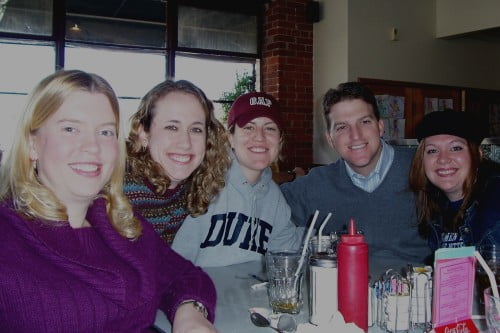 Where would you and I be today without the people we call "friends?"
Where would you and I be today without the people we call "friends?"
Who else do we have to call when we have the most horrible day imaginable?
How else would we have gotten through those "ugly cry" years?
Who else would we turn to when the best, beyond the best thing happens to us?
Especially as our society has become more and more mobile all the time and we don't all live in the same town as a our biological families forever, friends have become essential to our being.
In fact, recently the Huffington Post said that if you want to live to 100, the quality of your relationships has a lot to do with this.
When I first was introduced to Kevin in Washington DC over 9 years ago, meeting his friends and attending their yearly "Bring Back the Love" getaways to the beach became a rhythm of our life together. Though he never explicitly said it, if his friends didn't like me, then I was probably not going to a last.
And the same was true for me.
Friends are not only important to life within a marriage but all stages of life, married or single alike. I've come to believe that we all need friends both the long-distance kind and the up close and personal kind. 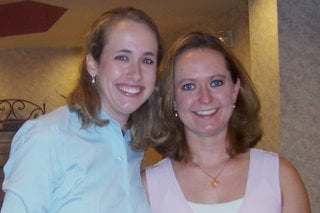
Those friends that we share life-long history with AND those whom we can call at a moments notice to go on a walk or to shop for something we just need a second opinion about!
Yet most of us struggle in at least one of these catagories. Especially in the post college or graduate years, it takes work. It takes time. It takes trust. It takes vulnerability. It takes moving to a new city and it sucking for awhile.
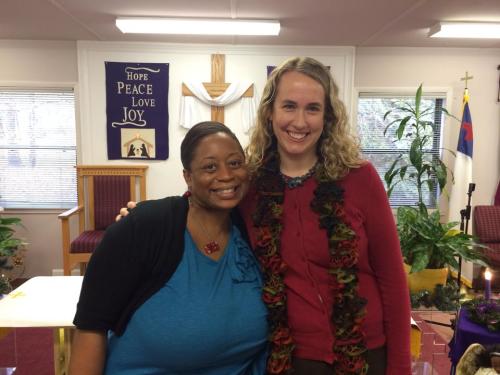 But, no matter if the friend of yours lives next door or two plane rides away, there's a word that describes what keeps good friendships going. And this is commitment. Lewis B. Smedes says this in his work, Caring and Committment:
But, no matter if the friend of yours lives next door or two plane rides away, there's a word that describes what keeps good friendships going. And this is commitment. Lewis B. Smedes says this in his work, Caring and Committment:
Not even mutual admiration is, by itself, enough to keep a friendship alive that long. For one thing we discover somewhere along the line that even people we admire have feet of clay. The best of us is flawed. Our flaws show through eventually; we disappoint our friends, and sometimes their disappointments hurts enough to wound our friendship. . . .
Besides, even friends who admire each other a lot drift a part when one moves to another part of the country. If I move away and don't see my friend for 5 years, and do not stay in close touch, our friendship is likely to die of malnutrition, with dignity maybe, and peacefully, but with the same result of dying. I may still admire him [or her], but I would admire him [or her] as a person who used to be my friend.
If friendships like these happen to last a lifetime, it is probably because they are more than friendships of affection, or usefulness or admiration. Most likely, they are held together because the friends are committed to each other.
So, who you want to do life together with? Who do you need to stick close to, no matter what? And, when is the last time you called them? Or texted them to just say hello? When is the last time you made a trek across the country (or a continent) just because you wanted to see their face?
We all get busy. And we all neglect relationships from time to time. To love someone is not to be there for every moment that your friend wants you to be at, but . . .
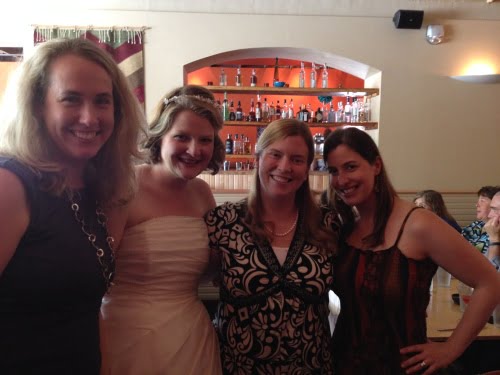
Our life schedules reflect what is important to us the most.
So, what does your monthly calendar say about your friendships?
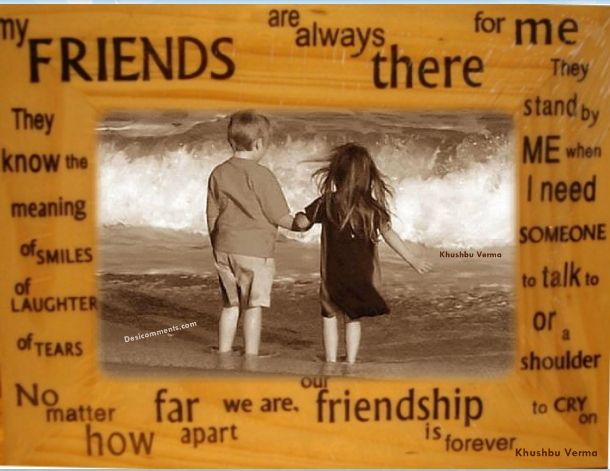 I grew up in the type of Christian community that would frequently say things like:
I grew up in the type of Christian community that would frequently say things like:
"Work on your relationship with God above all else."
And, "If you let anything come between your relationship with Jesus, then your faith is off track."
For while the intention of such teaching was probably was something like, "Make your faith life as a priority" (which is probably something that would come out of my mouth, even today) what I heard in my head as child was, "You can't have friends who you'd count closer to you than God."
As if friendship was some sort of divine vs. human competition . . .
It was as if God could not be present to us in my friends. . . .
But as much as I grew to love the divine presence in my life as teenager and college student-- sometimes Jesus' presence (in a spiritual sense) wasn't enough for me.
I needed friends. I didn't think Jesus made me to be so lonely.
I'll say it again: I needed friends. Having Jesus in my life didn't take this from me as hard as I tried to believe it would.
But, the church seemed to keep saying "Pursuing close friends would make Jesus jealous."
When I was in seminary and the relational bolts within me began to shift, I had a spiritual director who provided a light bulb moment. She kept noticing how uncomfortable I became when friends got too close to me. And she was right, I didn't like the vulnerability that it required. I was scared in fact. I thought, was I somehow cheating on Jesus if I really loved my friends? Would people really like me if they actually knew me?
But then this was the sticking point that she offered: "You can only be as close to God as you allow yourself to be to other people."
Of course this is not an "always true" statement (for there are countless faithful folks called to the ministry of monastic life or even hermit life for the reasons of prayer and un-interrupted communion with God), but I think there's great wisdom in it.
We can only be as close to God as we allow ourselves to be with other people.
There's power in community isn't there? In deep and abiding community with others the real stuff of our life comes out.
And by this I don't mean community with friends you have dinner with causally once a month or friends from the bleachers at your kids' soccer games-- I mean authentic friendship: those who know what makes you afraid, those who have seen you cry uncontrollably and vice versa, and those who can look in your eyes and know you're stewing about something even without you having to utter a word.
With people like this, there's no hiding. There's no major missing puzzle pieces as to what makes you tick held from the other. There's no shying away from the most unlikable parts of our personalities. It's really honest living for sure.
And when we get this honest-- I believe, our God who is the author of all truth shows up!
Roberta Bondi in her book, To Pray and To Love writes this: "The fulfillment of our deepest purposes and profound longs for God can never be separated from our love of God's own images among whom we live."
We learn about God, she is says, as we abide in relationship with those closest to us. In fact, we are MISSING out on parts of the personality of God when we don't get close to others.
Bondi even goes as far to write that the lack of intimacy many of us have in prayer occurs because we've never really learned how to talk openly and honestly to others. If we can't talk honestly with another human being, how could we talk honestly with God?
Bottom line is this: one of the most spiritual acts you and I could pursue right now and in the weeks to come is deepening our friendships. It might be the single greatest thing we could do to learn how to be closer to God.
It has taken me many years to shake off the baggage of my childhood in this regard. But I'm so glad I'm in the process of re-wiring all of this within me.
In friendship we both get to learn about and practice what it means to abide in God's love. So anybody got a friend they need to call today? Or meet for lunch soon? I know I do.
Christ the King Sunday 2012: Matthew 16: 13-20
On a lazy Saturday afternoon, one of my favorite things to do is watch those home design shows that seem to come on endlessly on cable. I remember once being mesmerized by an episode of the show: “Flip That House.”
 If you haven’t seen it, the basic concept is this: an individual or group with an interest in house design buys a place going into foreclosure or that is priced well below its market potential. Then, as fast as possible, they assemble the necessary work crew to fix up the house with the goal of selling it to make a huge profit. The concept sounds easy enough, but things never go exactly as planned . . .
If you haven’t seen it, the basic concept is this: an individual or group with an interest in house design buys a place going into foreclosure or that is priced well below its market potential. Then, as fast as possible, they assemble the necessary work crew to fix up the house with the goal of selling it to make a huge profit. The concept sounds easy enough, but things never go exactly as planned . . .
On this particular episode, two first time flippers buy a two bedroom house in a Dallas, TX neighborhood with big dreams of re-doing the kitchen, installing hardwood floors in the living room and even building an additional wing for a master bedroom suite in only 8 weeks.
With dollar signs in their eyes, the two men charge forward with their flipping project without taking much time to consider a lot of basic elements about their house. To make matters worse, against the advice of the experts guiding them, they remodel the kitchen and do the repairs to the living room in record speed. They make promises to lenders that their house will be complete soon as their cockiness grew by the day. Yet, they hadn’t begun anything yet!
When construction began, the water pipes below burst and the whole backyard looked like a pond. Their land sat on a virtual wasteland! The foundation of their house was built on low land in a flood zone.
When the city contractors came to assess the situation after their flip was set back 8 weeks due to the faulty piles, they made the statement: “If you’d only thought about where the house stood in relation to the water lines, this would have never happened. Next time you buy a house you need to know more about the foundation!” If these guys had only listened to the advice of the experts, they would have saved themselves valuable time and money (and of course the embarrassment of showing all their bad decisions on national t.v.!).
Foundations are important. If we start on the wrong kind of foundation or build on the wrong kind of foundation, our house is bound to crumble no matter how good our intentions are.
Here we stand together—on one of our last Sundays as pastor and people. And I couldn’t think of any better way to do that than to end where we started. I don’t know if you remember (and several of you weren’t around then) that my very first sermon series here at WPBC was on what it mean to be a Christian and what it meant to be a Christian church. I knew back then in January of 2009 that if we didn’t begin our relationship with Jesus then our partnership would ultimately fail.
And the same is how I feel about our ending. If we don’t stick with Jesus, the work that we’ve done together will also be in vain. Because when it all boils down and all of life melts away there is only this one confession on which our faith finds it foundation: Jesus is Lord. And today, the Gospel of Matthew chapter 16 will guide us to ask ourselves the foundational question-- what is our church built upon? Is it built on the Pastor? Is it build on the people who attend weekly? Or is it built on something altogether different?
When the earliest disciples began to follow Jesus, they did so having very little idea about what following Jesus would entail. The word “Christian” wasn’t even conceived yet. When Jesus invited them to come along, they weren’t asked to recite a creed, or detail a confession about their new leader—they were just asked to follow. For, they would learn what they needed as they went.
And, as their journeys of following Christ continued to unfold, points of revelation came for all of them. As they got to know Jesus better with every miracle he performed, with every meal he blessed, with every sermon he gave, they came to crucial moments of decision. Who really was this Jesus that they followed? And what did this mean for their lives?
Several months prior to our text, a big moment of truth came to all the disciples. Much to their surprise, Jesus met them from the other side of the lake by walking on water. It was a moment of great divine revelation. It was there that all of them confessed about him: “Surely you are the Son of God!” This began in Matthew’s gospel the huge moment of illumination where Jesus’ humanity and divinity came together.
So, when we get to the sixteenth chapter of Matthew’s gospel, we might wonder what the big deal about asking the disciples was: “Who do people say that I am? Who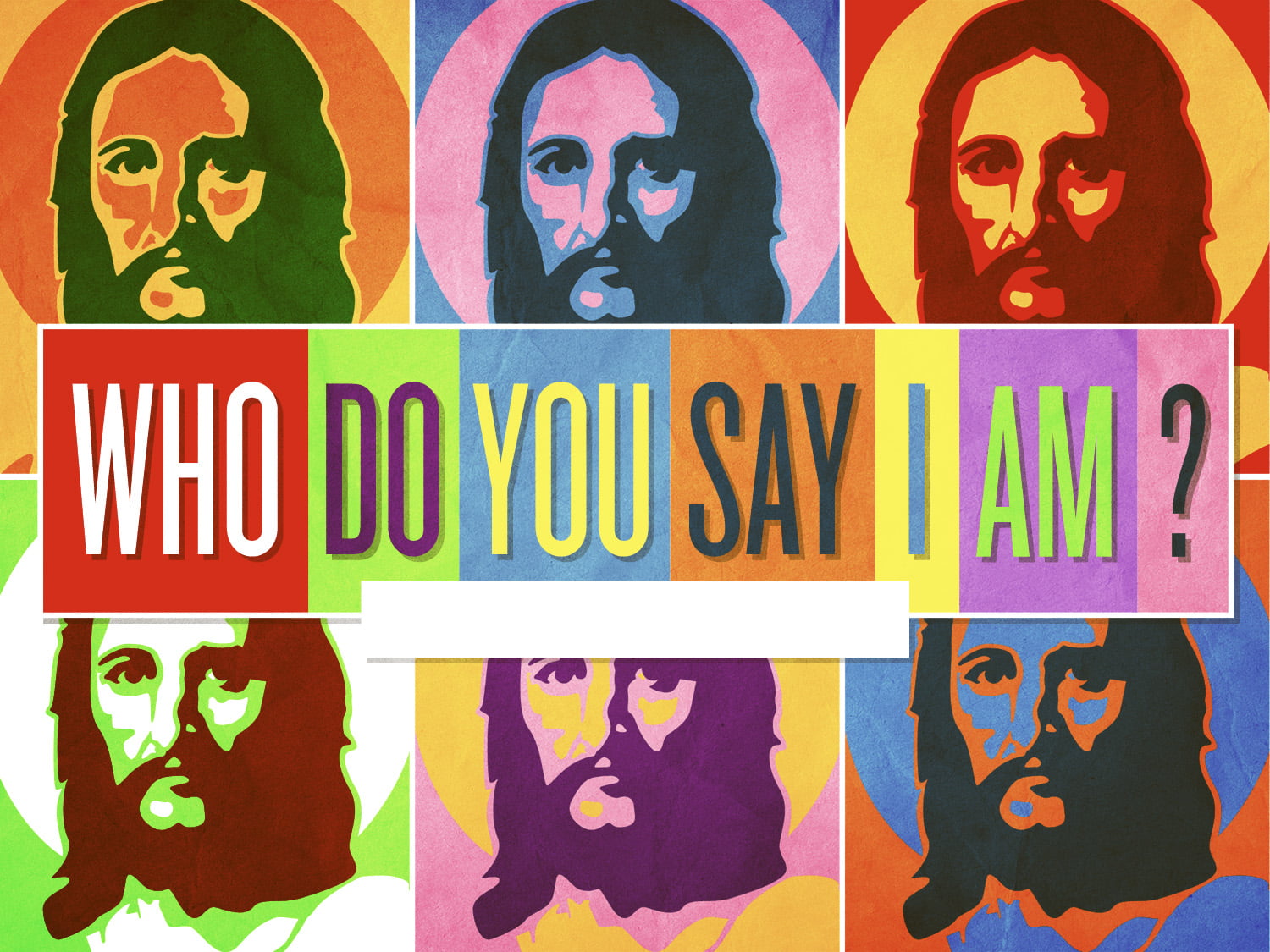 do you say that I am?” Hadn’t the disciples already passed this test? Hadn’t they already confessed Jesus to be God’s Son? What needed to be said again?
do you say that I am?” Hadn’t the disciples already passed this test? Hadn’t they already confessed Jesus to be God’s Son? What needed to be said again?
Well, unique to Matthew’s gospel, these statements of confession are all about something all together different from a declaration of Jesus’ identity. The teaching moment for Jesus got at the larger plan of what following him would look like in the future.
After several of the disciples replied to: “Who do people say that the Son of Man is?” by comparing Jesus to a line of prophets, Simon Peter jumps out on his own to answer for the group the main question: “Who do you say I am?” He replies: “You are the Messiah, Son of the living God.”
And after this exchange the rest of the dialogue begins to feel like a private conversation between Jesus and Simeon Peter.
The kind of talks you have with you parents when your siblings are not around, when they ask you to be the executor of their will. The kind of conversations you have with your favorite teacher who wanted to let you know that you had a gift in a particular subject matter and that you should definitely pursue it in college. The kind of conversations you have with your boss right before you get assigned to a new development at work. A sacred moment that you tend not to forget . . .
You see, Jesus knew something particular about Simeon Peter that no one had ever really cared about before.
Simeon was a leader. At his best, for good and for bad, he was willing to speak his thoughts aloud, courageously. And this moment, willingly, he spoke the truth about Jesus when others weren’t willing to go it alone. Simeon had the truth in his heart about Jesus that would carry the test of time—even when persecution came later on.
And because of this, Jesus spoke to him directly saying: “You are blessed, Simeon, son of Jonah.” Simeon, everything has changed for you now. I recognize that you get as much of me as you are able to understand at this point. I recognize that you love me and want to help me bring the goodness of God to those who are dying to hear a good word sometime soon.
And while since the time of Matthew’s gospel being written there have been centuries and centuries of debate about what this passages means exactly—with many Catholics seeing this text as reasons for the succession of popes beginning with the disciple Peter and with many Protestants on the other hand saying, “No, no”, this is about a confession of Jesus as the Messiah as the central message of the church, we need not be divided. Because what this passage boils down to is the foundation that was being laid for a community that would sustain the test of time.
The foundation would begin with Jesus and seeing him as Lord of all.
The point of Peter’s confession being this: without understanding Jesus, the formation of the church would have no foundation. Peter would be one of the first leaders to help the early church get this truth. Jesus, Messiah, Son of the Living God, would be the crucial, irreplaceable beginning to this movement called God’s new covenant with man. So much so, that when some of the early church coverts were first called the name: “Christian” in the city of Antioch, which literally meant: “follower of Christ.”
Thus, to be a Christian is completely dependent on the identity of Christ—we cannot talk about what it means to call ourselves a Christian or a Christian Church if we do not begin with Jesus. Jesus is the Solid Rock on which everything we do as a community must stand. Our foundation must be as a community must be as Jesus intended for us when he began encouraging its first leader, Simeon Peter.
We all bring to this community our hang ups with what it means to be a Christian. I bring mine from the conservative evangelical home I grew up in and the overkill of Jesus-ness I received as a child. You might bring your hang-up about Jesus from another religious tradition or from no tradition at all.
And because of these things, there are times when all of us are afraid to be too Christian or even too “Jesus-y.” We don’t want to appear to be too radical on Jesus and thus non-accepting of our neighbor like the negative examples of Christianity we see on the news. We don’t want to scare people off through our words. Doesn’t everybody know about Jesus? What might be the point of continuing to talk about him, we wonder?
This whole confessing Jesus thing is something that I have really grown through and in and around during my tenure as your pastor. Being your pastor as taught me to love Jesus in new and deeper ways than I've ever grown. And likewise, you’ve grown. You’ve matured. You’ve confessed Jesus, especially some of you who said when I first came, "I'm not sure I believe in the resurrection. I'm not sure I believe in the divinity of Christ." Today you are stronger believers. And I am so proud.
But we can’t stop now. Jesus was and is the foundation of our lives if we say we Christians and Jesus has and will be the foundation of our church if we call ourselves a Christian congregation.
If we do not heed such a truth, we will find ourselves like the Texas house flippers—weeks, months and even years off course of what God has for us in our community. Or, we might find ourselves investing in projects and causes that while they may be good, may not to be the best that God has for our community. We might find ourselves wasting precious years, months, or days of our lives.
We must keep singing hymns and songs of faith in this place. We must pray in acknowledgement of the importance of Christ here. We must remember that identity of Christ is what makes us different from a spirituality group or a social gathering going on in Reston on a Sunday morning. We must keep asking Jesus in all our prayers what is his will for our moving forward.
If we call ourselves Christians, we share in the identity of Christ, bottom line. And it is in sharing in this identity that we have something lasting to share with the world—hope of new promises of new beginnings, of forgiveness as we keep trusting in him.
This is what I most hope for the future of WPBC. This is what my prayer is that you will continue to find your foundation in Jesus. That you will remember Jesus. That you won’t forget Jesus. That when you feel lost, afraid, or unsure of what is next that you’ll go back to Jesus.
Jesus, Jesus, Jesus, sweetest name I know. Feels my every longing. Keeps me singing as I go. Why don't you sing with me?
AMEN